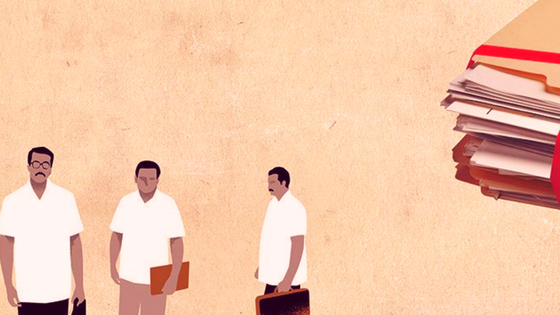
What is the Future of Democracy in India?
What does democracy mean?
As Aristotle said if liberty and equality, as is thought by some are chiefly to be found in democracy, these will be best attained when all persons alike share in the government to the utmost. So basically democracy is inclusive form of government.
But the present situation of Indian democracy is gloomy and full of sectarianism. Since the so-called upper-caste Hindu nationalist party, BJP, came into power the value of Indian democracy is shrinking day by day. On the other hand, it could also be argued that India never had democracy as it was always dominated and ruled by certain so-called castes. Periyar even described it as ‘Brahminocracy’ and not democracy.
India has a secular constitution but unfortunately, the present government is not secular at all. In fact, I would say the present government is full of bigotry and double-triple standards. Since 2014, communal tensions and religion-based politics have become even more prominent.
Caste atrocities against Dalits have increased under the present government. Brahminical authority in the garb of “Hindu unity” involves suppression and a threat to the ideas of equality.
Babasahib Ambedkar in one of his speeches out rightly warned us about how hero-worship will destroy the Indian democracy. Modi-worship by Modi-bhakts with comments such as ‘Modi is the father of the nation’, which ultimately is making him immune to accountability, is proving Dr Ambedkar right once again.
Indian democracy has become so fragile that patriotism is judged by the choice of your food or chanting some certain slogans, it can’t be more absurd than this or can it be?
The future of Indian democracy depends on the revival of Ambedkar’s philosophy and following that as close to heart and mind as possible. Babasaheb Ambedkar had a visionary conception of democracy, which needs to be rediscovered and reimplemented with full-force today.
Abraham Lincoln famously summed up the birth of a nation “conceived in Liberty and dedicated to the proposition that all men are created equal.” On the same note, I believe the role of government in a free society is 3-fold – providing social, political and economic equality. Equalities in these spheres shouldn’t come through the enforcement of laws but it is the duty of government to create and nourish a country, where these aspects of equality are embedded in the foundation of the country.
On the political spectrum, government’s role is to provide an environment where political freedom and autonomy, freedom of choice, freedom of vote, individual judgement and voluntary association are valued, and people have equal access to political institutions. I believe in the ideology of Abraham Lincoln that the government is for the people, by the people, and of the people but the opposite is happening in India at the moment – BJP government is for their relatives and family members so was previous Congress governments. Political democracy can’t survive without achieving social and economic equality.
On the social spectrum, the role of government is to provide social equality, civil rights, freedom of speech, equal opportunities, education, and justice not only for the majority communities but everyone in the society. How progressive the government is can be identified from its treatment of minority communities in the country.
On the economic front, the government must bring policies to equalize economic resources. Resources accumulated and concentrated in a few hands only are not good for the growth of society as well as the nation. Equalization of economic resources should not be at the cost of unjust and counterproductive restrictions on personal liberty. However, it should not be an excuse not to implement egalitarian economic policies to iron out economic inequalities and promote the ideas of justice, fairness and opportunities in economic terms.
Overall, the role of the government should be to serve the people and not govern but give the driving wheel of running the government in the hands of the citizens, that’s what would be the real democracy.
According to Babasaheb Ambedkar democracy is a state of “liberty, equality and fraternity”. No political democracy can survive without social and economic democracy. We have achieved a little bit of political democracy but nothing has been achieved about social and economic democracy, without which political democracy is meaningless and die sooner or later.
The author could be reached at his Twitter account @Bhaujan_connect, edited by Velivada Team




+ There are no comments
Add yours